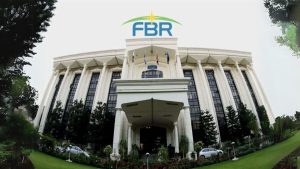Lahore: The Federal Board of Revenue (FBR) in Lahore is taking steps to crack down on cash transactions in the real estate sector in order to improve tax collection and monitor money trails. The FBR plans to implement strict penalties and improved monitoring measures to ensure compliance with regulations regarding the acquisition of immovable property.
Under the existing amendment, individuals are prohibited from acquiring immovable property with a fair market value exceeding Rs. 5,000,000, or any other asset valued at more than Rs. 1,000,000, unless the transaction is conducted through specified banking instruments such as crossed cheques, demand drafts, or pay orders.
Failure to adhere to these banking methods will have significant implications. Firstly, individuals engaging in cash transactions will not be eligible to claim deductions related to depreciation, initial allowance, intangibles, and pre-commencement expenditure for assets purchased outside of the specified banking channels. Secondly, any cash used for a purchase that should have been conducted through the prescribed banking channels will not be considered a cost when calculating gains from selling the asset.
Moreover, if someone purchases real estate worth more than five million rupees using cash or a bearer cheque, they will be subject to a penalty equal to 5% of the property’s value.
The FBR officials cite an example to illustrate the significance of these regulations. If an individual buys a house worth six million rupees and pays in cash instead of through the prescribed banking channels, they would be violating the law.
The official acknowledges that many property dealers are unaware or disregard these rules, and there is a preference for cash purchases in real estate, especially for properties under ten million rupees.
To address these issues, the FBR plans to closely monitor property transactions in notified areas and penalize those who violate the rules.





